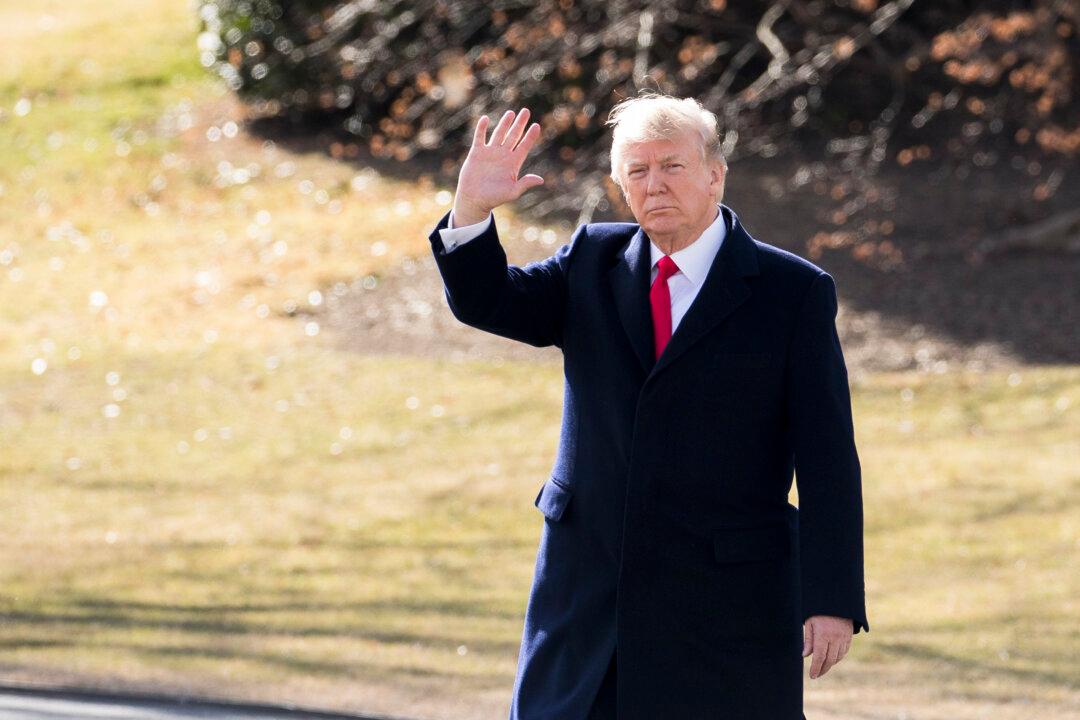Analysts say President Donald Trump is on track for a 2020 landslide victory. Their forecasts are based on economic models that have successfully predicted the right presidential victors in the past.
TrendMacrolytics, a research firm that predicted Trump’s 2016 election win, unveiled their model (pdf) for the upcoming presidential election on March 15, that predicts Trump will be re-elected by a margin of 294 electoral college votes if the election were held today. It also predicted that if the Republican candidate was someone else, like Mike Pence, that person would win by 214 electoral college votes.




